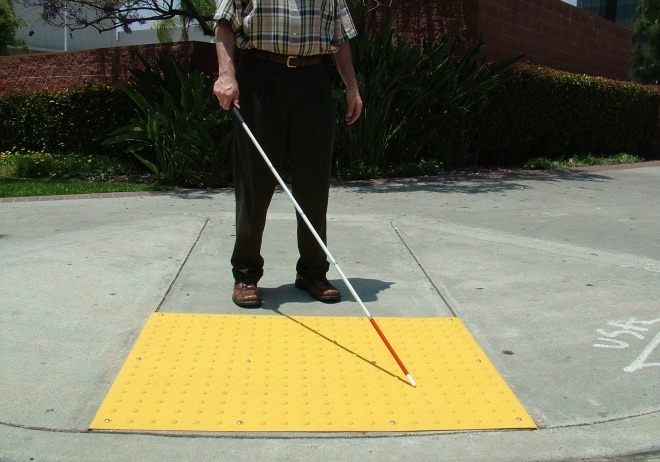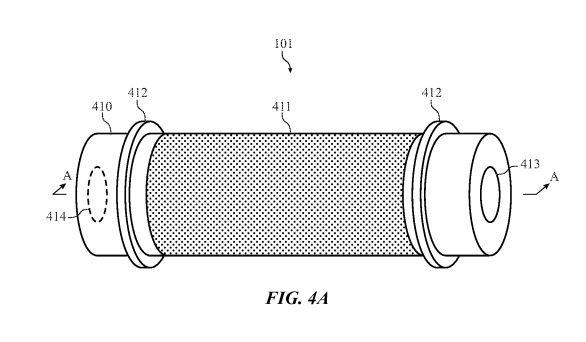Apple has considered ways to help the sensory impaired travel between locations, by using a combination of sensors to model the local environment, then providing tactile feedback to the user advising what objects and structures are near them.

The patent application for "Guidance device for the sensory impaired," initially filed by Apple in July 2015 but published by the U.S. Patent and Trademark Office on Thursday, discuses a system that centers around a device that uses an "input/output touch surface." The hardware will also include sensors to be able to acquire data about the nearby environment and be capable of processing the data into a model, which can be used to warn the user of any nearby threats or issues.
These environments can include outside areas, detecting traffic lights, vehicles, and other elements that need to be navigated, but it could also be used to traverse a room containing furniture, or to identify objects.
According to the application, the device would use a variety of sensors to create its environmental model, including positioning and navigational systems, a microphone, imaging sensors, and a communication unit that could connect to a smartphone for data, or to another device worn by the user.

In some of the images, it seems that the device resembles a torch, with sensors at one end to collect data ahead of the user, and the "input/output touch surface" looping around the cylindrical body.
This surface is suggested to include a bump-creation system that can be used to give tactile feedback via the user's hands while held. By changing the bumps, the surface can advise to the user the identity of an object in front of them, either by name or by shape, and if there are multiple items ahead of the user, the order that they will encounter the items.
The proposed system could also work with other items, including smartphones with a camera exposed to the world or a smartwatch, which could provide extra data to the device for its model. The same hardware could also offer feedback, including audio in the case the user falls and loses grip of the main device, or for haptic feedback.
There is also the suggestion that a panel could be inserted in the back of a jacket or coat that could provide feedback to the user, potentially freeing up their hands for other tasks.
Apple is known for filing large numbers of patent applications on a weekly basis, with many not making their way into future commercial products, so it is unclear if such a system will become available for use in the future.
The proposed patent application is not the only system attempting to solve navigational issues. In March, Microsoft released the free Soundscape iPhone app, which helps blind and limited vision users navigate to locations using 3D audio positioning, in order to audibly advise the real-world location of places in relation to the user.
Apple does have a history in promoting accessibility for technology, with its work honored during the 2017 Louis Braille Awards by the Associated Services for the Blind and Visually Impaired. Apple's operating systems and products feature numerous accessibility options making them useful to the deaf, blind, and other impaired users, which it last highlighted in May's Global Accessibility Awareness Day.
More recently, the Apple-backed USB Implementers Forum has announced a new interface standard for braille displays, which should help simplify the development of new hardware, and in turn reducing the cost to the end user. `